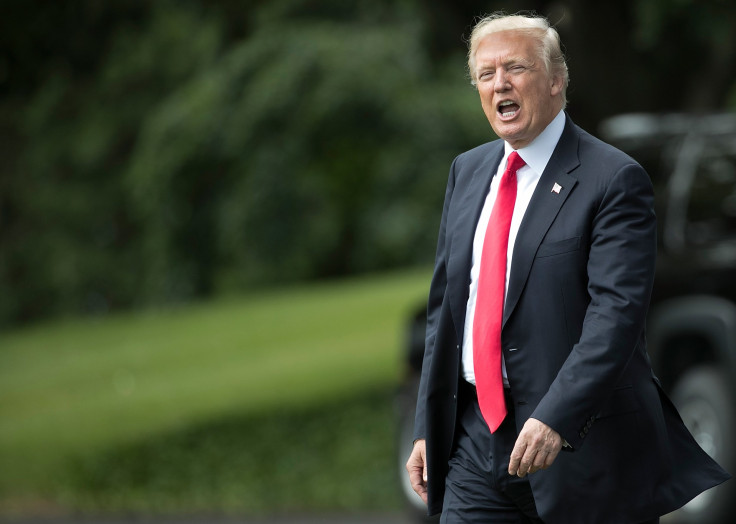Why Trump Impeachment Speculation Will Dominate 2018 Midterm Elections

As America approached the pivotal elections of 1940, President Franklin Roosevelt declared: “I am the issue.” So too will President Donald Trump be the issue in the midterm elections of 2018, no matter the protests of congressional Republicans. When Democrats made major gains in the off-year elections of 2017, opinions about President Trump reliably predicted voters’ decisions. Trump will be yet more central in the 2018 midterms for one simple reason that will dominate the campaign: impeachment.
Already, based only on what is known publicly, the obstruction of justice case against Trump is at least as strong as the case that prompted nearly every Republican in the U.S. House to vote for an article of impeachment against President Bill Clinton on obstruction.
According to emails, testimony under oath by former FBI Director James Comey, and well-sourced reporting:
- Trump kept NSA Director Michael Flynn in place for 18 days after being warned by the Acting Attorney General that he was likely compromised by the Russians.
- The White House coordinated with Republican House Intelligence Committee Chair Devin Nunes to derail the Committee’s Russia investigation with allegations of conspiracy against the DOJ and FBI.
- The White House may have coordinated with Nunes on his memo regarding the FISA warrant on Carter Page that Trump falsely claimed exonerated him in the investigations by Special Counsel Robert Mueller. Nunes has refused to answer questions on whether his staff worked with the White House.
- Trump asked FBI Director James Comey for personal loyalty and to let go of the investigation into Flynn.
- Trump asked the Acting FBI Director about his vote in the 2016 presidential election.
- Trump fired Comey with a pretextual justification that Trump himself falsified when he admitted that he fired Comey because of the Russia investigation.
- Trump intervened with heads of the U.S. intelligence community to influence the Russian investigation.
- Trump intervened with Republican legislators to say that he was cleared in still incomplete investigations.
- Trump dictated a memo providing a false explanation of the June 2016 meeting between Russian operatives and Donald Trump, Jr., Jared Kushner and Paul Manafort.
- Trump may have lied about his intent to fire Mueller.
On charges of conspiracy with the Russians to rig the election and related financial crimes, we know only the tip of the iceberg of what Mueller knows. Although President Trump has refused to release his tax returns, Donald Trump, Jr. said in 2008 that “[i]n terms of high-end product influx into the United States, Russians make up a pretty disproportionate cross-section of a lot of our assets; say in Dubai, and certainly with our project in SoHo and anywhere in New York. We see a lot of money pouring in from Russia.”
During the campaign, Trump and his associates sought to complete a deal for a massive Trump Tower in Moscow. Although the deal was not consummated, Trump’s long-time business associate Felix Sater said during the negotiations, “I will get Putin on this program and we will get Donald elected ... Buddy our boy can become President of the USA and we can engineer it.”
On June 9, 2016, Kremlin-connected Russians met with leaders of the Trump campaign, including Trump Jr., Kushner and campaign manager Paul Manafort. According to email evidence, the meeting’s purpose was to provide the campaign “some official documents and information that would incriminate Hillary” as “part of Russia and its government’s support for Mr. Trump.”
Well before their release, Russian operatives had informed George Papadopoulos, a foreign policy adviser to the Trump campaign, about their cache of stolen Democratic emails. In July 2016, Trump openly invited Russia to interfere with the election and to commit a crime by hacking into a private email server. He said, “Russia, if you’re listening, I hope you’re able to find the 30,000 emails [of Hillary Clinton] that are missing.”
There were numerous contacts between the Trump campaign team and the Russians, none of which were reported to the FBI, despite an FBI warning that Russians might be attempting to infiltrate the campaign. In a possible quid pro quo for Russian help in the election, Flynn contacted the Russian ambassador during the transition about easing the sanctions against Russia — contacts that members of the Trump team lied to cover up.
It is likely that by the late spring of this year, Mueller will present shocking findings on one or more impeachable offenses against President Trump. Republicans in the U.S. House of Representatives will then be faced with the agonizing choice of beginning an impeachment investigation of the president in the Judiciary Committee or risking retribution at the polls by turning a blind eye to Mueller’s findings. Under either circumstance, Trump’s impeachment will become the central issue of the campaign.
Allan J. Lichtman is a Distinguished Professor in the Department of History at American University and the author of White Protestant Nation: The Rise of the American Conservative Movement.
© Copyright IBTimes 2025. All rights reserved.





















